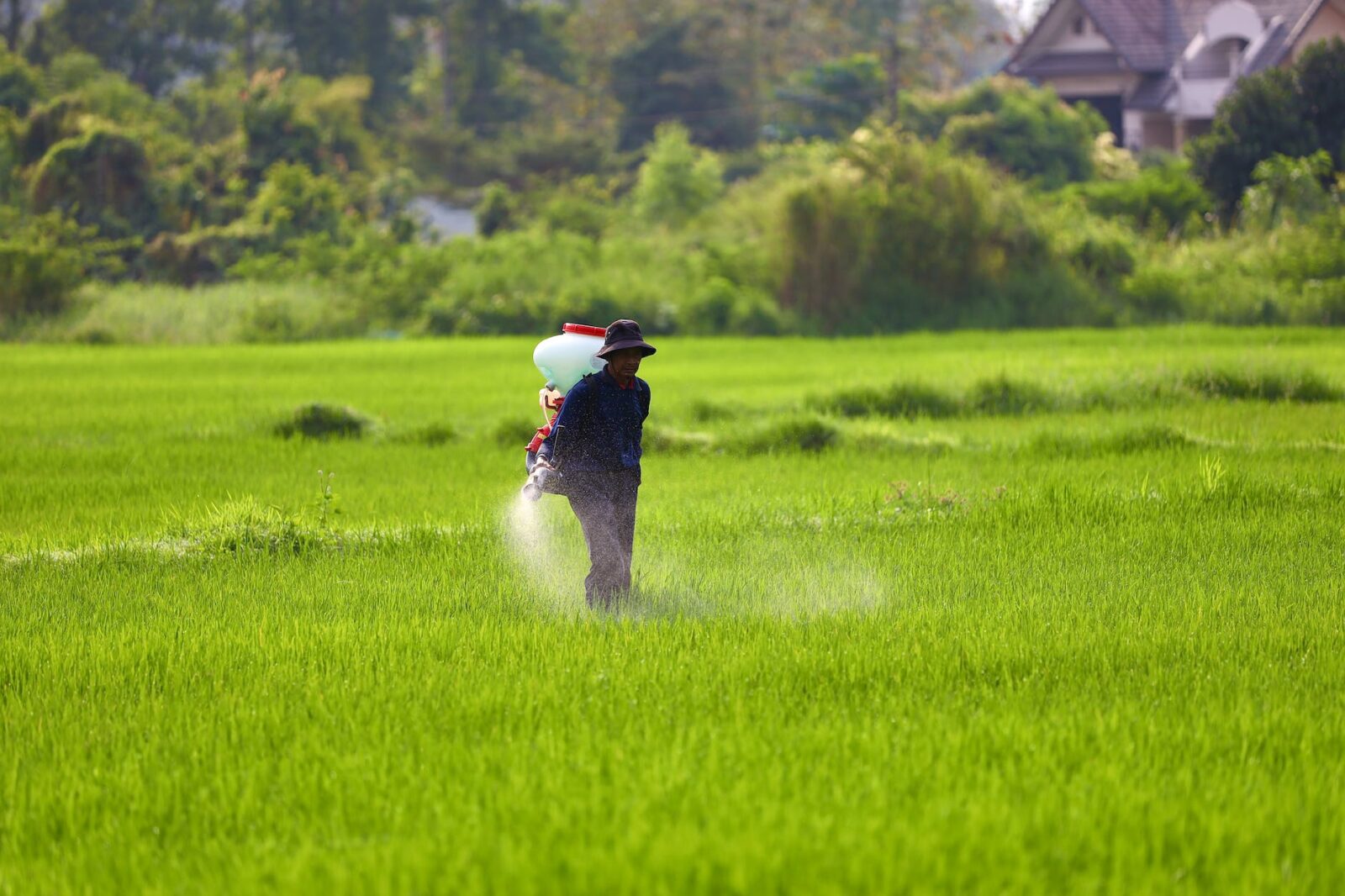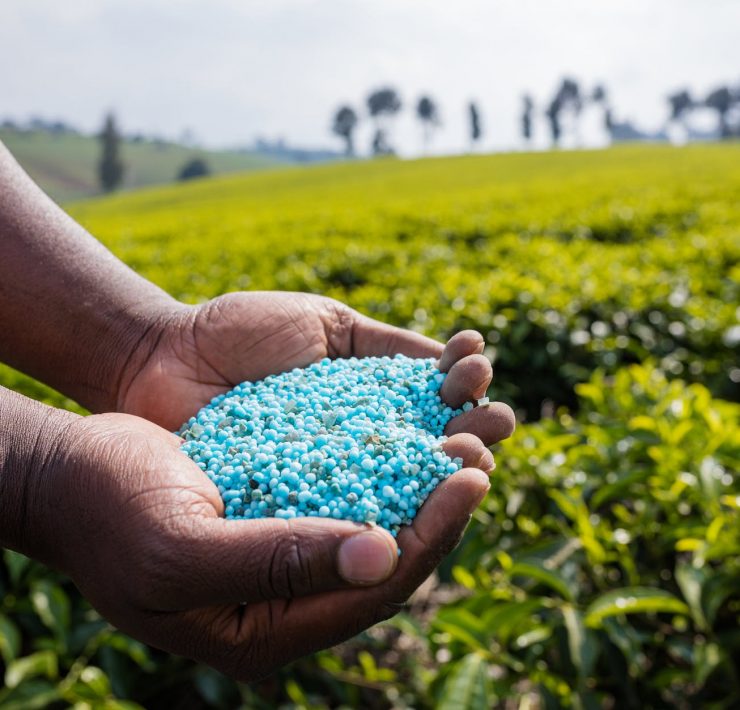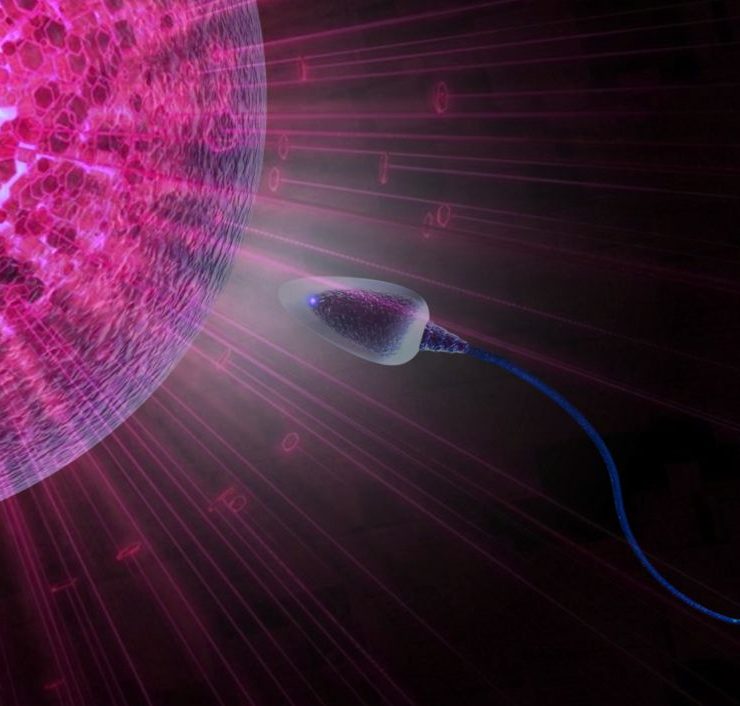Glyphosate

Michelle Llamas has been writing articles and producing podcasts about…
What Is Glyphosate?

Glyphosate, the active component found in popular herbicides such as Roundup, sees extensive application in agriculture to combat unwanted weeds that compete with crops. Nevertheless, apprehensions have surfaced concerning its safety and potential impacts on health. Legal disputes have arisen, asserting that exposure to glyphosate through products like Roundup might be connected to specific types of cancer, notably non-Hodgkin lymphoma. Glyphosate operates by inhibiting the enzyme EPSP synthase, causing disruptions in plant growth that ultimately result in the plant’s demise. While some regulatory authorities consider the levels of glyphosate in food as safe, concerns regarding its long-term consequences continue to grow. Typical repercussions of exposure include skin and respiratory irritations, and research indicates potential associations between glyphosate and both cancer and neurological disorders. Certain countries within the European Union have imposed bans on glyphosate, and Bayer, the manufacturer of Roundup, has encountered significant settlements in legal actions in the United States lawsuits linked to glyphosate exposure.
How Does Glyphosate Work?
Glyphosate suppresses the enzyme EPSP synthase, which contributes to plant growth. The inhibited enzyme reduces a plant’s ability to synthesize the amino acids it needs to grow. A plant’s stems and leaves absorb the chemical, then carry it to the roots. Once it reaches the roots, glyphosate stops the plant from absorbing nutrients from the ground, which leads to the plant’s death.
Glyphosate is a nonselective herbicide, which means it can spread to surrounding plants and crops. It’s only applicable to crops that grow above the water and are not fully submerged.
Glyphosate in Roundup and Other Lawn Care Products
Glyphosate is the primary active ingredient in Roundup. Other popular weed killers containing glyphosate include Rodeo and Touchdown.
Monsanto, a U.S.-based agrochemical and agricultural biotechnology conglomerate, manufactured Roundup from 1974 to 2018, when Bayer bought the company. In 2021, Bayer announced it would remove lawn and garden products containing glyphosate from the U.S. market in 2023.
Other Roundup products containing glyphosate include:
- Glyphomax Plus
- Roundup UltraDry
- Roundup UltraMax
- Touchdown 5
- Touchdown IQ
Glyphosate is also used in aquariums to control algae and weed growth. Some popular aquarium herbicide brands include AquaPro Aquatic, Roundup Custom Herbicide and AquaNeat. Users must exercise caution when applying these products in aquariums because they can harm aquatic life.
Glyphosate Exposure from Drinking Water and Food
The Environmental Working Group recently commissioned several rounds of testing in food to detect the presence of the chemical. It found glyphosate in 95% of the wheat samples tested. Glyphosate in food and drinking water raises concerns about its potential public impact.
Foods found to contain glyphosate include:

- Chicken flour
- Crackers
- Dried pasta
- Lentils
- Oats
- Pizza
Most food safety regulatory bodies say the levels of glyphosate found in food are safe for humans. But other experts question the long-term health effects of continuous exposure to such a potent chemical.
Common Side Effects of Glyphosate Exposure
Interaction with glyphosate may lead to a variety of side effects, the severity of which depends on the amount and duration of contact. The most common health issues stem from inhalation or skin contact.
Side effects of glyphosate include:
- Asthma
- Burns in the mouth and throat
- Diarrhea
- Eye irritation
- Increased saliva
- Nausea
- Respiratory irritation
- Skin irritation
- Vomiting
National Pesticide Information Center studies show that glyphosate leaves the body soon after it’s ingested. Humans pass the chemical through urine and feces without changing its chemical composition.
To help prevent skin irritation and other adverse side effects, health experts recommend wearing protective clothing, such as long-sleeved shirts and long pants. Masks are recommended for those who spray the herbicide. Avoid any direct contact with glyphosate.
Long-Term Effects, Cancer Risks and Glyphosate
The International Agency for Research on Cancer officially ruled in 2015 that glyphosate is “probably carcinogenic.” While the U.S. Environmental Protection Agency contends that there is “no evidence that glyphosate causes cancer in humans,” a growing number of studies are examining links to non-Hodgkin lymphoma and other forms of cancer.
A key piece of research that has shifted the discussion about Roundup and cancer is a 2019 study from the University of California, University of Washington and Icahn School of Medicine at Mount Sinai. Researchers from the three universities found that the risk of developing non-Hodgkin lymphoma increased 41% for high-exposure groups. The authors stated, “Our current meta-analysis of human epidemiological studies suggests a compelling link between exposures to GBHs and increased risk for NHL.”
A number of studies including a 2022 study from scientists at the University at Albany’s Department of Environmental Health Science, School of Public Health and Institute for Health and the Environment are also studying a possible association between glyphosate and autism. The Albany authors concluded, “The weight of the evidence indicates that in addition to cancer and reproductive effects, glyphosate and GBHs have significant adverse effects on the brain and behavior and increase the risk of at least some serious neurological diseases.”
Because of growing concerns that Roundup causes cancer and other serious adverse health effects, some countries in the European Union have begun banning glyphosate. Bayer has paid billions of dollars to settle Roundup lawsuits in the U.S. that allege glyphosate exposure caused plaintiffs’ cancer. In 2018, a jury in California awarded $289 million in damages to a plaintiff who alleged Roundup was the primary cause of his terminal cancer. The verdict is under appeal.
Tips for Reducing Glyphosate Exposure
People can avoid glyphosate use with several Roundup alternatives. These include manual or mechanical methods of weed pulling, such as small and large hand tools, tillers and other mechanical methods.
Natural or organic herbicides whose active ingredients are vinegar or essential oils are also an option. Ask your local home and garden center for organic or natural herbicides that do not contain glyphosate.
What's Your Reaction?
Michelle Llamas has been writing articles and producing podcasts about drugs, medical devices and the FDA for nearly a decade. Michelle collaborates with experts, including board-certified doctors, patients and advocates, to provide trusted health information to the public.


















